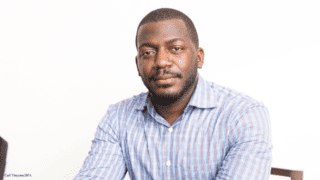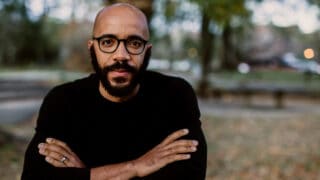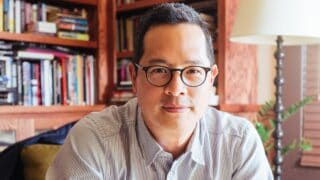The Lavin Agency Speakers Bureau
A speakers bureau that represents the best original thinkers,
writers, and doers for speaking engagements.
A speakers bureau that represents the best original thinkers,
writers, and doers for speaking engagements.
Music speaks to people—touches people—in ways words alone cannot.
Music isn’t a form of entertainment, it’s a lifeline. For Vijay Gupta, all art is a kind of soul-metabolism: a way of transforming pain, grief and trauma into something which nourishes. Hailed by The New Yorker as a “visionary violinist” and “one of the most radical thinkers in the unradical world of American classical music,” Gupta creates spaces of wholeness and belonging through his work. In hopeful, healing talks, he shows us creative ways to revitalize our sense of hope and belonging.
“A master of music and medicine.”— The TODAY Show
Vijay Gupta is the founder and Artistic Director of Street Symphony, a nationally recognized pioneer in creating musical experiences for people in reentry from homelessness, addiction and incarceration. Since 2011 Street Symphony’s communities of artists have presented thousands of musical workshops, performances and lessons in Los Angeles shelters, clinics, county jails, state hospitals and prisons – delivering the music of classical, choral, Jazz, Reggae, Mariachi and West African drumming traditions to communities beyond the concert hall. Vijay believes that the transformation brought on by music is a “two-way symphony”: a pathway to mutual healing.
Vijay is a celebrated violinist, curator and music director, performing as an international recitalist, soloist, chamber and orchestral musician for over 20 years. Vijay served as a member of the first violin section of the Los Angeles Philharmonic for 12 years, and was the 2023 Artist in Residence at Music Worcester. He is a founding member of the Darshan Piano Trio, and is a member of Tesserae Baroque. A dynamic recording artist, Vijay’s critically acclaimed discography includes an array of chamber music and solo works. He was named to the American Academy of Arts and Sciences in 2024.
A riveting speaker, Vijay has shared his work and music with dozens of corporations, campuses, conferences and communities across America over the past 10 years, including The Richmond Forum, The Aspen Institute, Hallmark, Accenture, Mayo Clinic, US Psychiatric Congress, American Planning Association, and the League of American Orchestras, just to name a few. His three TED talks have garnered millions of views. He is the author of a forthcoming memoir on the intersection of loss, hope, and music.
Wonderful! Moving, evocative, thought-provoking, inspirational. It is this kind of presentation that moves people to action.
British Columbia Non-Profit Housing AssociationVijay was a sheer delight. He was not only an incredible storyteller/entertainer/inspiration, he was flexible and easy to work with. I don’t know how to talk about his joining the Nashville Symphony and becoming a part of our community here, but I’m scheming about it!
Porters Call[We were so thrilled to] meet the amazingly talented, delightful, and inspirational Vijay Gupta. I have already had emails from Texas Tech Music faculty thanking me for the wonderful evening. One man told me last night that it was the best event he had ever attended on the Tech campus. We over-use the word “brilliant” nowadays, but in Vijay’s case, it fits. Thank you!
Texas Tech UniversityNew York Times bestselling author of Charged New York Times Magazine staff writer Political Gabfest co-host

Author of The State Must Provide: The Definitive History of Racial Inequality in American Higher Education Staff Writer at The Atlantic

#1 New York Times Bestselling Author of How the Word Is Passed and Above Ground Atlantic Staff Writer
Pulitzer Prize-Winning Author of On Juneteenth Harvard Law Professor MacArthur Genius

Pulitzer Prize-Winning Creator of The 1619 Project Executive Producer of the Emmy Award-Winning 1619 Project Hulu Docuseries MacArthur Genius
Pulitzer Prize-winning author of Guns, Germs, and Steel, Collapse, and Upheaval
Pulitzer Prize-Winning author of Stay True New Yorker staff writer CBS Sunday Morning contributor

Social Historian, Cultural Critic & Community Organizer Author of We Gon’ Be Alright and Can't Stop Won't Stop
Renowned Cultural Critic New York Times Bestselling Author of 10 Books, Including Sex, Drugs, and Cocoa Puffs

Author of Grit, the #1 New York Times Bestseller | Pioneering Researcher on Grit, Perseverance, and the Science of Success

Pulitzer Prize-Winning Creator of The 1619 Project | Executive Producer of the Emmy Award-Winning 1619 Project Hulu Docuseries | MacArthur Genius
Nike's Former Chief Marketing Officer | Author of Emotion by Design

New York Times Bestselling Author Of All Boys Aren’t Blue and We Are Not Broken | Emmy Nominee | LGBTQIA+ Activist
CEO of The Atlantic | Former Editor-in-Chief of WIRED



In this talk, Vijay Gupta explores the connection between music and mental health, explaining why music’s redemptive power may hold more potential than we realize. Vijay draws from his work as director of Street Symphony—a musical engagement non-profit—to illustrate how music can help bring people back from the brink of their darkest times. How does music speak to people in ways language cannot? Why is music education vitally important, especially to those who are most in need? Erudite, eloquent, and passionate, Vijay shows audiences that music isn’t just something to be enjoyed—it’s something that can change lives.

Vijay Gupta believes strongly that music should be a fundamental element in an educational curriculum, beyond an extracurricular hobby or even a medium to facilitate instruction in other fields, such as math or science. In this talk, he shares his personal journey in music education, tying in his experiences as a young musician struggling to find the meaning in music with the lack of programs and support, as well as the stigma he faced at choosing between a career as a “responsible person” in science and a career in his life’s passion, music. That stigma still exists around music and the arts. Vijay believes music educators are true pioneers in the kind of human education that will shape the kind of empathic and compassionate socially connected lives that our world demands of our young people. Music gives us these human tools, says Vijay—the relational discipline grounded in passion that truly can affect change in the world around us.